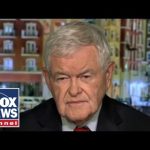In a spirited discussion about the United States’ trade relationship with Europe, former White House Counselor for Trade and Manufacturing Peter Navarro laid out a sharp critique of the European Union’s trade practices. His remarks come as President Donald Trump has implemented sweeping 25% tariffs on steel and aluminum imports, a move designed to revitalize American manufacturing and address what the administration views as long-standing inequities in transatlantic trade.
Navarro highlighted the EU’s significant trade surplus with the U.S., which reached €169 billion by 2023. He argued that this imbalance is not just an economic issue but also a matter of fairness. Pointing to the EU’s 10% tariff on U.S. auto imports—compared to America’s 2.5% tariff on European cars—Navarro described the situation as a one-sided deal that disadvantages American industries. He proposed that Europe could use its trade surplus to increase contributions to NATO, underscoring Trump’s broader push for European countries to shoulder more of their defense costs.
The administration’s recent tariff hikes on steel and aluminum have drawn both praise and criticism. Supporters argue that these measures will boost domestic production and secure critical industries for national defense, while critics warn of potential price increases for consumers and retaliation from trade partners. The tariffs eliminate previous exemptions granted under the Biden administration, ensuring a uniform 25% duty on all imports of these metals, regardless of origin.
Navarro also emphasized the importance of revitalizing America’s steel and aluminum industries, which have suffered from years of foreign dumping and underutilization. He noted that capacity utilization in domestic foundries has fallen below the critical 80% threshold, leading to closures of key facilities under prior leadership. By reinstating higher tariffs without exemptions, Trump aims to reverse this trend, encouraging investment in American manufacturing while reducing reliance on foreign suppliers.
The EU has responded with threats of reciprocal tariffs, particularly targeting American exports like whiskey and agricultural products. However, Navarro dismissed these threats as posturing, arguing that Europe has more to lose given its reliance on the U.S. market for automotive exports. European carmakers exported €56 billion worth of vehicles to the U.S. in 2023 alone, making them highly vulnerable to any escalation in trade tensions.
These actions represent a necessary correction to decades of lopsided trade policies that have undermined American jobs and industries. By taking a hardline stance against unfair practices like value-added taxes (VATs) and non-tariff barriers, Trump and Navarro are prioritizing American workers and businesses over globalist interests. Critics may decry these moves as protectionist, but supporters see them as essential steps toward restoring economic sovereignty.
As the U.S.-EU trade relationship enters a new phase of tension, the stakes are high for both sides. Whether these policies will lead to long-term gains for American manufacturing or provoke a damaging trade war remains to be seen. What is clear is that Trump’s administration is committed to reshaping global trade dynamics in favor of American interests—a bold strategy that could redefine economic relations for years to come.




